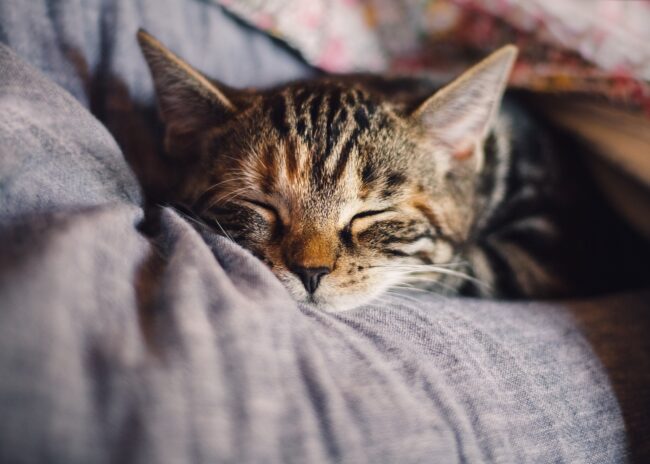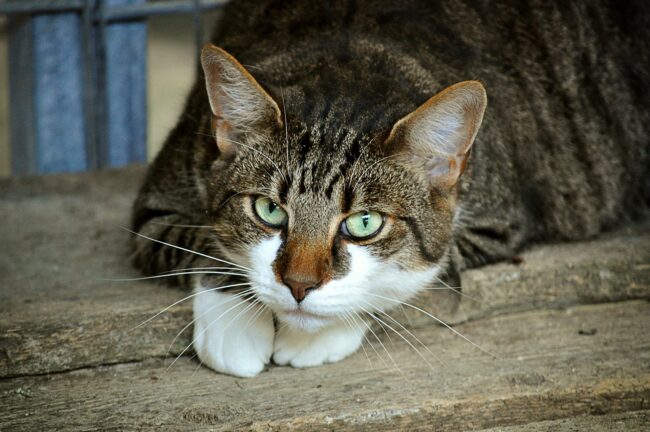Table of Contents
Pet owners across the world are always on the lookout to bring variety to their cat diets. Supplementing your feline friend’s diet with healthy options is a great way to ensure they live longer and healthier. However, it is important to be aware of the food items that could be dangerous for cats, even if they are healthy for humans.
Many of us wonder whether our cats can eat pretzels. While they are a decent snack for people, are they recommended for cats? In this article, we try to answer this question and consider the implications associated with pretzels for cats. We also look at the impact of this food on diabetic cats.
Can Cats Eat Pretzels? – UPDATED 2022
Pretzels are baked bread products made from grains and dough and twisted into a knot shape. You can find a wide variety of pretzels in the market, soft and hard, in different seasoning options though salty is the most popular type. Though pretzels are made up of ingredients that don’t suit cats, they are not likely to cause problems once they are baked.
This means cats can eat pretzels without any issue. They are often baked to be low on salts and calories, making them an excellent option for cat treats. They can be fun and delicious treats for your feline friends if they are interested in them. Pretzels are not harmful to cats, but you should not feed this baked food to your kitty regularly and should offer them only as an occasional treat. They are not an ideal substitute for the cat’s daily diet.
Are Pretzels Bad For Cats? Here’s What You Should Know
Pretzels are aesthetically appealing with a nice aroma, drawing cats towards them. However, you should make sure your cat doesn’t get addicted to these snacks because too much of them can make your cat fat. However attracted your cat is to pretzels, you should offer them to your kitty as occasional treats and not as a part of daily food. The main reason is that pretzels don’t contain beneficial nutrients. Cats are carnivores and should get their daily nutrients from high-protein animal-based foods.
Sometimes, the ingredients used in pretzels can be harmful and toxic to your cat. Salt is used in high amounts in most of the varieties of pretzels available in stores. Excessive salt can cause dehydration and lead to more serious conditions, including poisoning, diarrhoea and tremors. Sweeteners like chocolate and sugar are commonly used in pretzels, neither of which are safe for cats, particularly those diagnosed with diabetes. These ingredients come with risks of weight gain, obesity, diabetes, heart problems and oral diseases.
Pretzels come in hard and soft varieties, and the hard ones can lead to choking. Soft pretzels are a better choice for your furry friends as they have a lower risk of choking them or causing issues. Moreover, you should remember that not all cats can eat pretzels. Depending on the ingredients, some cats with allergies, intolerances or sensitive stomachs should not eat these snacks. Look for healthier options that contain minimum artificial sweeteners, flavors, colors, grains and soy to ensure your cat enjoys pretzels without any risk or adverse effects.
Cat Pretzel Holder
Pretzels can be displayed beautifully when stored on holders and cases that add to the home’s beauty while making them easily accessible. Cat pretzel holders come in a wide variety of designs and sizes. Stand-style holders generally have alternating sticks to hang the pretzels while others have a display case design with varying levels. The number of pretzels that these levels can hold varies greatly. Most of these are made out of wood though you can find them in various material choices.
Cat Pretzel Toys
Pretzels have appealing shapes and colors and make a great choice for cat dental toys. Chew toys in pretzel design improve the cat’s oral health by cleaning teeth and massaging gums. These toys are made of mesh netted material that removes tartar and plaque while gentle on gums. They are stuffed with catnip to attract the kitty’s attention and encourage them to chew.
Cat pretzel toys make a great addition to your home as they promote positive behavior in your cats, whether they are teething kittens or older felines that love to chew on. Dental toys can help satisfy their cravings and redirect their attention from other parts of the home.
You can find a wide variety of other cat pretzel toys from different pet brands aimed at helping owners engage their pets and keep them trained and healthy.
Diabetic Cat Behavior Changes – You Should Be Aware!
Diabetes is one of the most common conditions in cats. If your cat eats a lot of sweet, fat-loaded, unhealthy foods and is not active, it has a risk of weight gain, obesity and diabetes. Identifying abnormal behavior in your pet as early as possible is the best way to ensure timely treatment. If your cat suddenly starts behaving differently or strangely, you should consider other signs and symptoms to evaluate its health. Though cat personalities seem to change with age, a drastic shift in behavior is a cause of concern.
Some of the most common changes in behavior in diabetic cats you should take note of include:
Increased thirst – A diabetic cat urinates more and gets thirsty often. Constant thirst is one of the first signals of diabetes in pets.
Change in appetite – If your cat suddenly refuses to eat, it is a matter of concern. Moreover, a quick weight change is also a warning sign of something serious. Weight gain or loss can indicate an imbalance in the cat’s glucose levels.
Lack of affection – If your cat was once cuddly and no longer wants to be held, it should not be taken lightly. Look for other signs of diabetes to treat it on time.
Mood swings and aloofness – Frequent mood swings indicate some internal health issues with the cat. Your cat may no longer wish to greet you and stay aloof.
When your cat starts acting like a different cat, it is not something normal. Cats are experts at hiding their health problems, so you should pay close attention to a drastic change in cat behavior to identify diabetes or any other issue at the earliest. If you see any sudden behavior change in your pet, consider taking it to a vet. A simple wellness examination once in a while can also save its life and ensure it lives healthy and happy.


